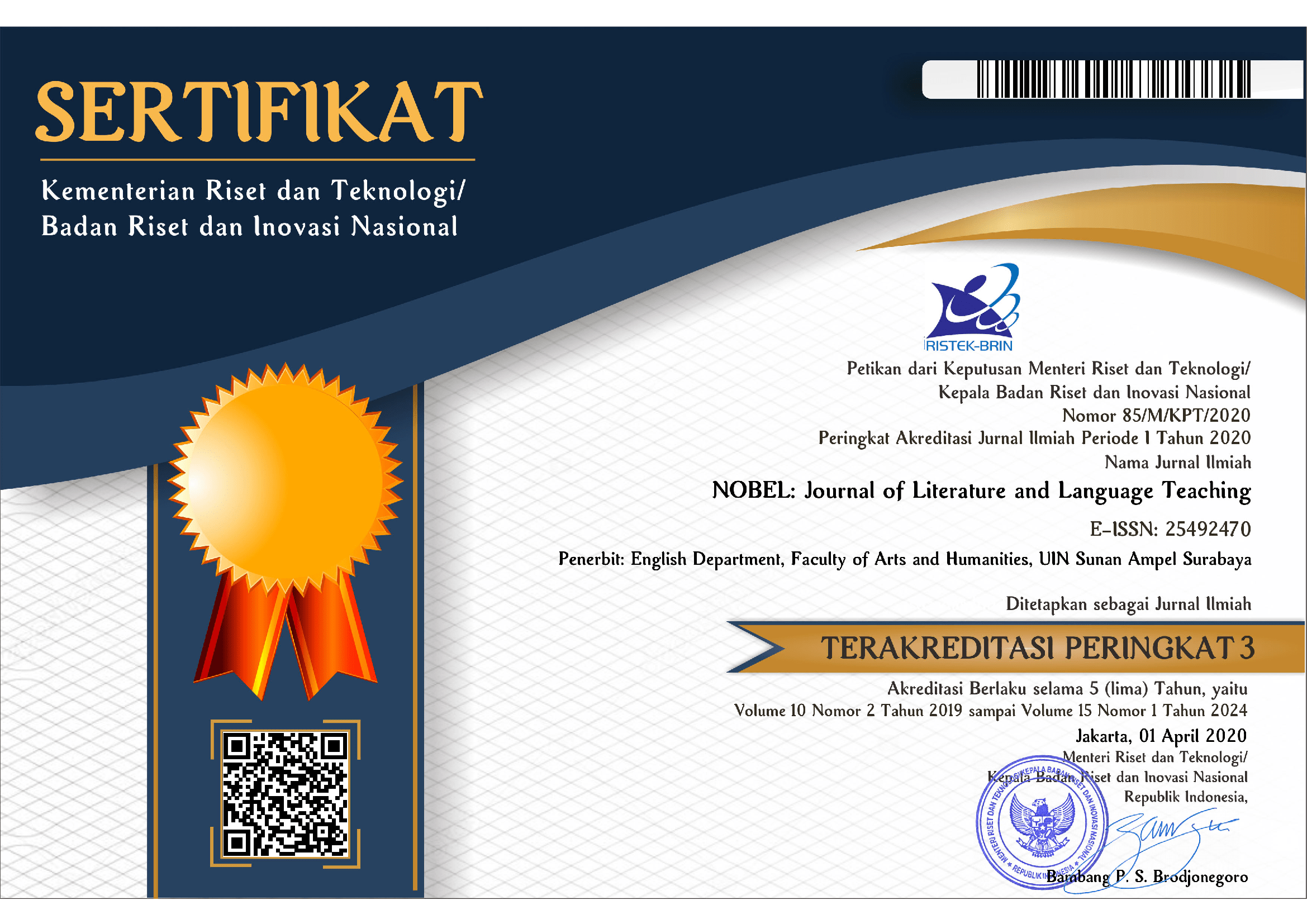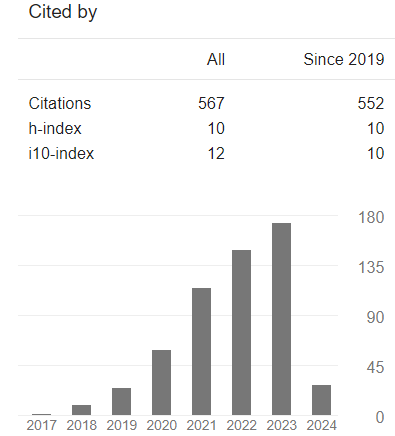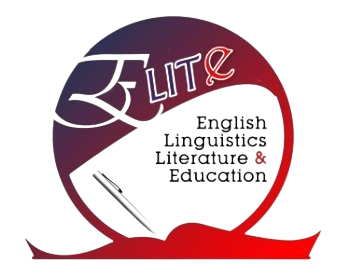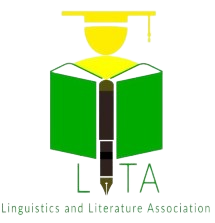Students' Problems in the Instruction of English Literature in the EFL Context
DOI:
https://doi.org/10.15642/NOBEL.2022.13.2.242-253Keywords:
affective factors, language competence, reading motivation, learning of literature, student-related problemsAbstract
This study reveals student-related problems as an existing phenomenon in the learning of English literature at the English Department. This refers to both the difficulties faced by the students and the students as a part of the problems. Using the qualitative descriptive method, the data were collected using questionnaires, observation, documentation, and Forum Group Discussion. Having been collected, the data were analyzed using qualitative data analysis offered by Miles, Huberman, and Saldana (2020) consisting of reduction, display, and conclusion phases. The findings show that there are external and internal problems. The external problems include students’ external factors, such as the difficulty of teaching materials and the ineffective teaching strategy, whereas the internal problems cover students’ affective factors, such as low reading motivation and inadequate language competence. Due to its limitation, it is suggested that further research be carried out with other subjects in another university context to verify the findings.
Downloads
References
Abdullah, B. M. A., Murad, I. H., & Abdullah, H. F. (2020). Kurdish students’ attitudes towards the use of films in teaching literary works in EFL classrooms. JEELS (Journal of English Education and Linguistics Studies). https://doi.org/10.30762/jeels.v7i1.1431
Atek, E. S. E., Hassan, I., Azmi, M. N. L., Alias, M. H. Y., & Azmi, N. J. (2020). Popular approaches to the teaching of English literature among students in selected Malaysian secondary schools. International Journal of English Language and Literature Studies. https://doi.org/10.18488/JOURNAL.23.2020.94.339.348
Carissa, D., Hastami, Y., & Pamungkasari, E. P. (2020). The effect of motivation on English literature reading on medical students’ block examination score. Jurnal Pendidikan Kedokteran Indonesia: The Indonesian Journal of Medical Education. https://doi.org/10.22146/jpki.33690
Colton, R. E. (1975). The Story of the Widow of Ephesus in Petronius and La Fontaine. The Classical Journal, 71(1), 35–52. http://www.jstor.org/stable/3295480
Dixon, D. (2022). Novel Assertions: A Reply to Mahon. The British Journal of Aesthetics. https://doi.org/10.1093/aesthj/ayab017
Frost, R. (1874-1963). Dust of Snow. poets.org. (accessed at 10.06 on 19 September 2022)
Geldiashvili, N. (2021). Characteristics of Old Georgian Literary Language in Akaki Tsereteli’s Works. TRANSACTIONS OF TELAVI STATE UNIVERSITY. https://doi.org/10.52340/tuw.2021.441
Halimah, Sumiyadi, Mulyati, Y., & Damaianti, V. S. (2020). Critical Literacy Approach in the teaching of literary appreciation using Indonesian short stories. Indonesian Journal of Applied Linguistics. https://doi.org/10.17509/IJAL.V10I1.24992
Hambur, F. M., & Nurhayati, N. (2019). Feminism thoughts in 20th and 21st-century literary works: A comparative study. EduLite: Journal of English Education, Literature and Culture. https://doi.org/10.30659/e.4.2.183-193
Handayani, S., Youlia, L., Febriani, R. B., & Syafryadin, S. (2020). The use of digital literature in teaching reading narrative text. Journal of English Teaching, Applied Linguistics, and Literatures (JETALL). https://doi.org/10.20527/jetall.v3i2.8445
Hapsari, A. (2016). Literary Competence For The Teaching Of Literature In Second Language Educational Context. Journal of English and Education. https://doi.org/10.20885/jee.vol5.iss1.art2
Hemingway, E. (1952). The old man and the sea. Scribner
Herlina, N. (2016). Teaching literature through poetry: A shifting reading orientation from efferent to aesthetic. EduLite: Journal of English Education, Literature and Culture. https://doi.org/10.30659/e.1.2.225-238
Hwang, Y. T., Strikwerda-Brown, C., El-Omar, H., Ramanan, S., Hodges, J. R., Burrell, J. R., Piguet, O., & Irish, M. (2021). “More than words”–Longitudinal linguistic changes in the works of a writer diagnosed with semantic dementia. Neurocase. https://doi.org/10.1080/13554794.2021.1924208
Iskhak, I., Mujiyanto, J., & Hartono, R. (2020). A Review on Reader Response Approach to Teaching Literature at EFL Contexts. English Language Teaching. https://doi.org/10.5539/elt.v13n7p118
Ismawati, E., W. (2019). Local wisdom in the Javanese literary works as teaching materials. Jurnal Unsyiah.
Jose, A. E. S., & Galang, J. G. (2015). Teaching strategies in teaching literature: Students in focus. International Journal of Education and Research.
Karomah, S., & Hermawan, A. (2020). Kajian Aspek Moral Pada Buku Kumpulan Dongeng Si Kancil Karya Mb Rahimsyah Ar (Buku Pegangan para Bunda untuk Mendongeng Kepada Si buah hati). JURNAL SOSIAL : Jurnal Penelitian Ilmu-Ilmu Sosial. https://doi.org/10.33319/sos.v21i2.59
Kumaravadivelu, B. (2006). Understanding language teaching: From method to post method. Lawrence Erlbaum.
Laine, T. (2021). Motivation to read? reading among upper-class children in Finland during the 17th and 18th centuries. In Knygotyra. https://doi.org/10.15388/Knygotyra.2021.76.75
Litosseliti, L. (ed.). (2010). Research methods in linguistics. Continuum International Publishing Group
Mahmood, R., Shah, A. H., & Alam, I. (2021). Effectiveness of code-switching and code-mixing while teaching literature in a second language. Asian EFL Journal.
Malićević, A., Tasić Mitić, I., & Stojadinović, A. (2021). The student as an active recipient of literary art. Facta Universitatis, Series: Teaching, Learning and Teacher Education. https://doi.org/10.22190/futlte2002139m
Manggong, L. (2019). The Use of Memes and Whatsapp Message in Teaching Literature. AKSIS: Jurnal Pendidikan Bahasa Dan Sastra Indonesia. https://doi.org/10.21009/aksis.030102
Miles, M.B., Huberman, A.M., Saldaña, J. (2020). Qualitative data analysis: A methods sourcebook (edition 3). Sage Publishers
Mu’in, F. (2021). Developing Language Skills and Building Characters through Literature. Arab World English Journal For Translation and Literary Studies. https://doi.org/10.24093/awejtls/vol5no1.16
Novianti, N. (2016). English literature teaching: An Indonesian context. Indonesian Journal of Applied Linguistics. https://doi.org/10.17509/ijal.v6i1.2660
Rahman, I. A., Mustofa, M., Putra, I. S., & Moueed, A. (2021). Teaching Literature in A Doll’s House Drama. INTERACTION: Jurnal Pendidikan Bahasa. https://doi.org/10.36232/jurnalpendidikanbahasa.v8i1.962
Rahman, F. (2018). The Constraints of Foreign Learners in Reading English Literary Works: A Case Study at Hasanuddin University. Journal of Arts and Humanities. https://doi.org/10.18533/journal.v7i2.1327
Riadil, I. G. (2020). Identifying EFL students’ motivation towards reading activity to enrich the classroom interaction in ELT context. ELP (Journal of English Language Pedagogy). https://doi.org/10.36665/elp.v5i2.314
Sapiro, G. (2020). Faulkner in France or How to Introduce a Peripheral Unknown Author in the Center of the World Republic of Letters. In Journal of World Literature. https://doi.org/10.1163/24056480-00103007
Sunardi, Akil, M., Arafah, B., & Salija, K. (2018). Looking at the shared conception of teaching literature in an Indonesian elt setting. Journal of Language Teaching and Research. https://doi.org/10.17507/jltr.0902.13
Wang, C. (2020). Research on the Features of British and American Literary Works from Linguistic Perspective. Review of Educational Theory. https://doi.org/10.30564/ret.v3i2.1721
Wibowo, T.B.S. "World Writers #573: Kho Ping Hoo" Kompasiana.com https://www.kompasiana.com/embahnyutz1/54f38cdc745513992b6c7a9b/world-writers-573-kho-ping-hoo (Accessed on 23 September 2022)
Won, J.-I. (2020). From a Moral Story to a Literary Work. The Comparative Study of World Literature. https://doi.org/10.33078/cowol71.08
Yimwilai, S. (2015). An integrated approach to teaching literature in an EFL classroom. English Language Teaching. https://doi.org/10.5539/elt.v8n2p14
Downloads
Published
How to Cite
Issue
Section
License
Copyright (c) 2022 NOBEL: Journal of Literature and Language Teaching

This work is licensed under a Creative Commons Attribution 4.0 International License.







